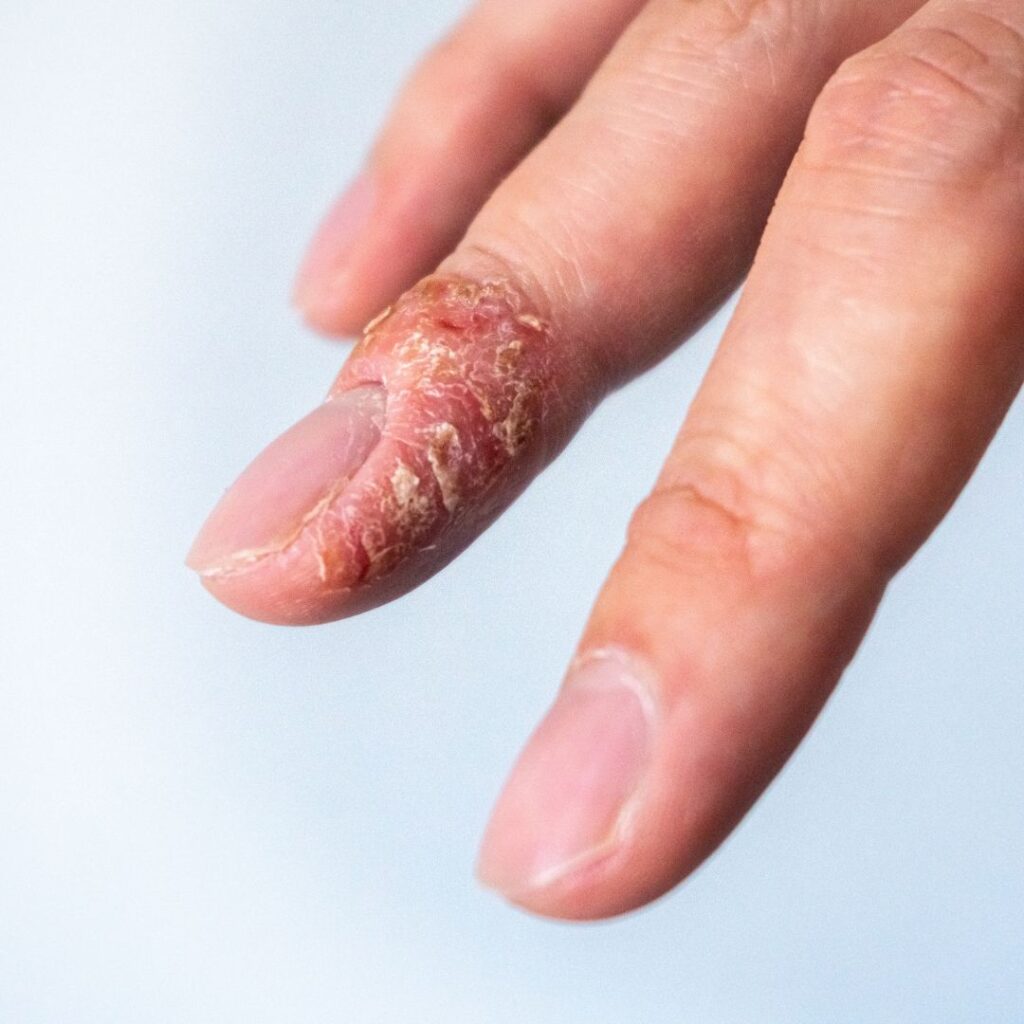Contact Dermatitis
Contact dermatitis is a category of skin inflammation caused by direct contact with a substance that irritates or triggers an allergic reaction.
We Treat Redness Itching Blisters Inflammation
What is Contact Dermatitis?
Contact Dermatitis is a type of reaction that occurs when your skin comes in contact with an allergen or irritant. The rash typically appears red, itchy, or tender. It’s important to know that contact dermatitis is not contagious or life-threatening. However, it can be very uncomfortable, so it’s important to consult a dermatologist who can help identify the cause and manage your symptoms.
Contact Dermatitis by the Numbers
Affects up to
Contact Dermatitis caused by irritants account for almost
Board-Certified Providers
All Our Providers are Board-Certified and State-Licensed Medical Professionals.
Unmatched Expertise
Our Providers Have Years of Experience Diagnosing and Treating Skin Conditions.
Comprehensive Care
We Provide Medical Dermatology, Cosmetic Dermatology, and Aesthetic Services.
Qualified
Staff
Our Staff Is Ready to Help You and Your Family With All of Your Dermatological Needs.
Expert Dermatology Care for the Entire Family
Types of Contact Dermatitis

There are three types of contact dermatitis:
- Allergic contact dermatitis: This type involves an immune system response when you come into contact with an allergen like poison ivy or latex.
- Irritant contact dermatitis: Irritant contact dermatitis is the most widespread type and occurs when your skin comes in contact with a toxic material like some household cleaning chemicals.
- Photocontact dermatitis: The least common type of contact dermatitis–photocontact dermatitis occurs when the active ingredients in a topical skin product are exposed to the sun.
The Cause of Contact Dermatitis
There is no single cause for contact dermatitis, and the cause(s) are unique to each individual. The most common triggers for each type of contact dermatitis are as follows:
For allergic contact dermatitis:
- Poison ivy, poison oak, or poison sumac
- Nickel or gold (commonly found in jewelry)
- Latex (gloves)
- Fragrance in perfumes, cosmetics, or skincare products
- Medications (such as antibiotics)
For irritant contact dermatitis:
- Bleach
- Battery acid
- Drain cleaners
- Hydraulic fluid
- Kerosene
- Laundry detergents
- Soap
For photocontact dermatitis:
- Sunscreen
- Tar products
- Fragrance in perfumes, cosmetics, or skincare products
- Insecticides
- Disinfectants
Signs You May Be Experiencing Contact Dermatitis
The symptoms can vary depending on the type of contact dermatitis and the way in which your individual body responds. They typically appear within minutes or up to hours after exposure and may last for 2-4 weeks. The most common symptoms include:
- Dry, scaly, and/or flaky skin
- Hives
- Blisters
- Redness
- Itching
- Sensitivity to sun
- Cracking
- Open sores
- Changes in pigmentation
- Skin tightness
- Swelling/inflammation

Expert Dermatology Care for the Entire Family

When You Should See a Dermatologist?
If you notice you are experiencing any of the symptoms mentioned above and suspect you are experiencing contact dermatitis, you should immediately wash the affected area with warm water and gentle soap to remove any allergens or irritants. If your symptoms do not improve within a few days or are near your lungs, eyes, mouth, or nasal passage, you should seek immediate attention from a medical professional.
Fever or oozing blisters are signs you may have an infection, so it’s important to seek treatment quickly to prevent spreading.
How is Contact Dermatitis Treated?
At-home treatments that may help relieve symptoms include oral antihistamines such as Benadryl or a cold compress.
Depending on the severity, a physician may prescribe an oral or topical steroid in addition to an antihistamine. To identify what is causing your reaction so that you can avoid future contact, he or she may conduct a skin test or keep a journal of any products that your skin comes into contact with over a period of time.
Contact Blue Ridge Dermatology Today
If you are suffering from chronic or prolonged contact dermatitis, contact Blue Ridge Dermatology today to schedule an appointment with one of our dermatology experts. Our team will work to identify the cause of your reaction and help relieve your symptoms.
Subscribe To Our Newsletter
Stay in touch with us to get latest news and special offers.
Raleigh
4225 Macon Pond Rd, Suite 300, Raleigh, NC 27607
Cary
1110 SE Cary Pkwy, Suite 100, Cary, NC 27518

